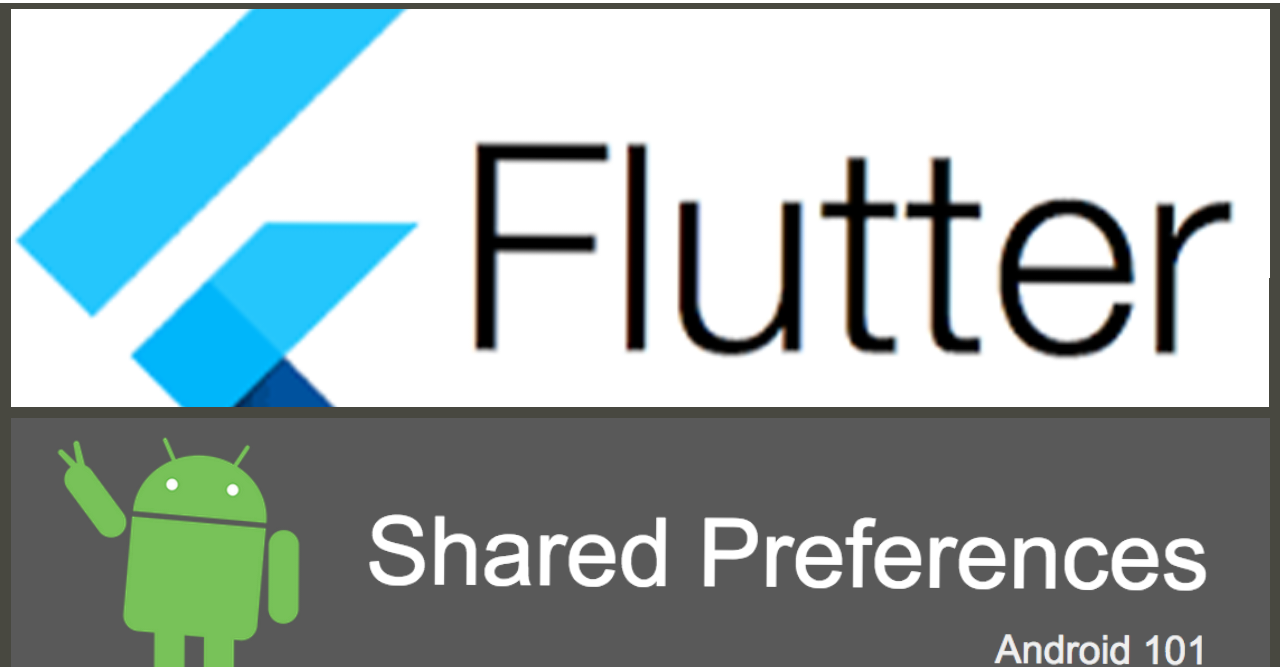Flutter useful class for shared preferences

In the article shared preferences in depth, I explained how to use shared preferences in Flutter. In this article I want to show you a class that I designed to simplify its use. I created this class out of the need to store user data. For example, I used it in Send to Kindle to store a mail list. I also used it to store the user’s token list and to purchase data.
Overall, this structure can be used where there is the need of working with a list of strings. In my previous article, I have already shown how to store a list of strings in local cache. This class, however, makes it even easier to use and adds methods that allow us to work faster.
First, I created the method to save a local cache list as follows:
class CashedUserData {
static Future<void> _writes = Future.value();
//add list by key reference in local cache
static Future<void> addlist(String kPrefKey, List<String> stringList) async{
_writes = _writes.then((void _) => _doAddList(kPrefKey,stringList));
return _writes;
}
}
static Future<void> _doAddList(String kPrefKey, List<String> list) async {
List<String> cached = await load(kPrefKey);
cached.addAll(list);
await (await SharedPreferences.getInstance()).setStringList(kPrefKey, cached);
}Then I created another method to retrieve the list, I have also put the appropriate checks here, if empty or null:
static Future<List<String>> load(String kPrefKey) async {
return (await SharedPreferences.getInstance()).getStringList(kPrefKey) ??
[];
}As I used it, I needed to add more methods. Methods to:
-
Clear the list.
-
Enter one string at a time
-
Override the list
-
Check if an element exists
-
Take the first item on the list.
-
Save an item at the top of the list.
In this way the class eventually became like this:
class CashedUserData {
static Future<void> _writes = Future.value();
static Future<void> overrideListData(String kPrefKey, List<String> stringList) async{
_writes = _writes.then((void _) => _doOverrideListData(kPrefKey,stringList));
return _writes;
}
static Future<void> addlist(String kPrefKey, List<String> stringList) async{
_writes = _writes.then((void _) => _doAddList(kPrefKey,stringList));
return _writes;
}
static Future<void> save(String kPrefKey, String id) async{
if(await CashedUserData.exist(kPrefKey, id))
return;
_writes = _writes.then((void _) => _doSave(kPrefKey,id));
return _writes;
}
static Future<void> saveAsFirst(String kPrefKey, String id) async{
List<String> actuaList = await load(kPrefKey);
if(actuaList!=null && actuaList.length == 0 )
return save(kPrefKey,id);
if(actuaList.contains(id))
actuaList.remove(id);
if(actuaList.length>1)
actuaList.removeAt(0);
List<String> newlist = new List();
newlist.add(id);
newlist.addAll(actuaList);
_writes = _writes.then((void _) => _doOverrideListData(kPrefKey,newlist));
return _writes;
}
static Future<void> delete(String kPrefKey, String id) {
_writes = _writes.then((void _) => _doDelete(kPrefKey,id));
return _writes;
}
static Future<String> getFirst(String kPrefKey) async {
List<String> dataList = (await SharedPreferences.getInstance()).getStringList(kPrefKey);
return (dataList!=null && dataList.length>0) ? dataList[0] : "";
}
static Future<List<String>> load(String kPrefKey) async {
return (await SharedPreferences.getInstance()).getStringList(kPrefKey) ??
[];
}
static Future<bool> exist(String kPrefKey, String id) async {
List<String> userDataList = (await SharedPreferences.getInstance()).getStringList(kPrefKey) ?? [];
return (userDataList!=null && userDataList.length > 0) ? userDataList.contains(id) : false;
}
static Future<void> _doSave(String kPrefKey, String id) async {
List<String> cached = await load(kPrefKey);
cached.add(id);
await (await SharedPreferences.getInstance()).setStringList(kPrefKey, cached);
}
static Future<void> _doDelete(String kPrefKey, String id) async {
List<String> cached = await load(kPrefKey);
cached.remove(id);
await (await SharedPreferences.getInstance()).setStringList(kPrefKey, cached);
}
static Future<void> _doAddList(String kPrefKey, List<String> list) async {
List<String> cached = await load(kPrefKey);
cached.addAll(list);
await (await SharedPreferences.getInstance()).setStringList(kPrefKey, cached);
}
static Future<void> _doOverrideListData(String kPrefKey, List<String> list) async {
await (await SharedPreferences.getInstance()).setStringList(kPrefKey, list);
}
static update(String kPrefKey, String currentItem, String kindlemail) async{
List<String> actuaList = await load(kPrefKey);
if(actuaList!=null && actuaList.length > 0 )
{
try{actuaList[actuaList.indexOf(currentItem)] = kindlemail;} catch (e) {}
}
await overrideListData(kPrefKey, actuaList);
}
}By doing this I simplified the call points. Furthermore, if the plugin shared preference used changed, there would only be one place where to take action.